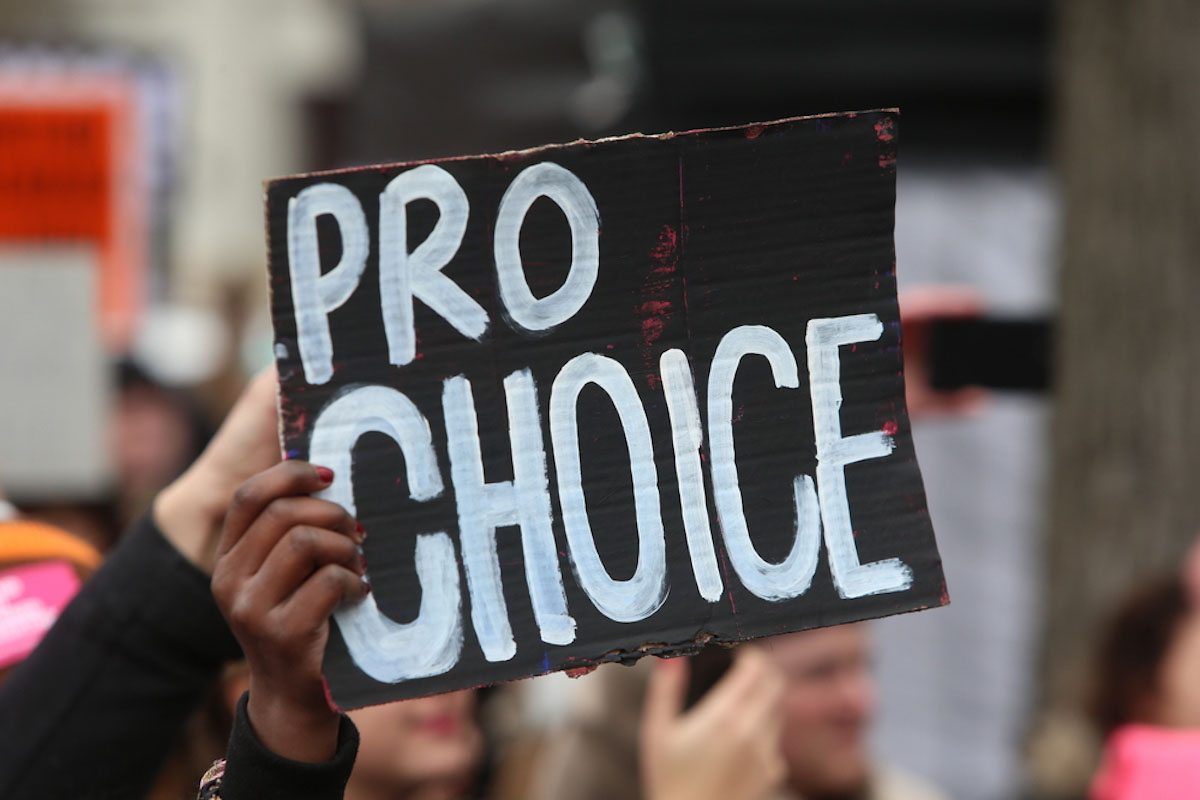Welcome to The Week in Reproductive Justice, a weekly recap of all news related to the hot-button issue of what lawmakers are allowing women to do with their bodies!
This week, Ireland’s government approved a referendum bill on the country’s ban on abortion. If the referendum is successful, the government will introduce legislation to allow unrestricted abortion as late as 12 weeks of pregnancy.
The vote is a crucial step in the right direction for the country, though just about any women’s health expert could attest to how heavily restricting abortion after 12 weeks is still reckless and dangerous. In either case, we in America really only need to look to countries around the world where abortion is sweepingly illegal to see that, if anti-abortion lawmakers in the United States achieve their end-goal, women—and everyone, in some way, really—will suffer.
Already, in states where the procedure is heavily restricted and lawmakers continue to introduce more and more, increasingly creative and dangerous bills, women are forced to break their bank accounts traveling to have the procedure. In other cases, the high volumes of internet searches for how to perform a DIY abortion are a terrifying reminder of a darker time in U.S. history that abortion restrictions threaten to bring us back to.
As countries like Ireland take steps forward on women’s human rights, it’s time for the U.S. to look at how our own government too often takes steps backwards. And until that changes, women will continue to pay the price.
Trump’s global gag rule is hurting young women overseas
In a report revealing the obvious, several health groups said on Thursday that an executive order, signed by President Trump last year, that bans taxpayer funding for global groups that share information about reproductive health resources has been harmful in countries like Uganda and Nigeria. According to the report, in these countries, women are experiencing an “increasingly hostile environment for sexual and reproductive health rights,” not to mention reduced access to life-saving contraception and HIV assistance.
Under the executive order, if a group even discusses abortion as an option for young women in countries where child marriage, human trafficking, and sexual violence toward girls are all too common, they will lose all of their funding from the U.S. government—funding that affects HIV/AIDS, maternal and child health, malaria, nutrition, and other life-saving, fundamental resources, according to CNN.
Playing politics with women and girls’ lives, safety, and health has long been a guiding force in U.S. domestic policy, and with the Reagan-era global gag rule, formerly removed by President Obama, back in place, it looks like this dangerous, sexist, and extremist principle will guide foreign policy, too.
Mississippi moves to ban abortion at 15 weeks
On Thursday, Mississippi’s House of Representatives voted in favor of a bill to ban abortion at or after 15 weeks in the state, just two days after the state Senate approved the bill. In other words, as of this week, the abortion ban with the strictest timeframe in any state in the country is one Republican governor’s signature away from success. Gov. Phil Bryant has previously expressed his willingness to sign the bill.
Notably, only about 7 percent of abortions take place after the first trimester, making the law exponentially more about stigmatizing the procedure as a whole and catering to the narrative that abortion commonly is, in the words of our president, “in the ninth month … ripping the baby out of the womb.” But for that minority of women who have late-term abortions, they often do so for reasons out of their control, such as severe health-related complications or not becoming aware of their pregnancy until later.
Mississippi already bans abortion at 18 weeks, among myriad other restrictions, and is one of seven states in the country with only one abortion clinic. When the bill is signed, it will inevitably be challenged in court being as obviously unconstitutional and contrary to Roe v. Wade as it is. However, not only could this lead to adverse effects if it moves up to the conservative-led Supreme Court—which some fear could overturn Roe if a case like this made it to the court—but it’s also harmful enough just by likely motivating other sharply anti-choice states to introduce similar legislation.
West Virginia voters will decide if abortion is a constitutional right
This week, West Virginia’s House and Senate passed a joint resolution to remove state constitutional protection for abortions. The resolution will be approved not by the governor’s signature, but by West Virginia voters come November. If the resolution is successful, abortion will no longer be deemed a protected right, and the state Constitution will make note of this. If abortion is no longer regarded as a protected right in the state, then Medicaid funding will no longer cover the costs of the health service.
The ACLU has already expressed concern with the disproportionate effects this resolution would have on low-income women in the state, which already has only one abortion clinic and many other restrictions that make the decision to end a pregnancy complicated, expensive and even dangerous. West Virginia is also the second-poorest state in the country.
“Women will continue to have [abortion] done,” ACLU Executive Director Joseph Cohen told local news. “We need to create a society where people are engaging in safe medical care as decided between them and their doctors and the privacy of that relationship the woman and the doctor.”
Indiana moves to require abortion providers to report complications
In a move to stigmatize abortion even more than it already is in a state once governed by Mike Pence, this week, a bill that would require clinics to report any complications associated with abortion moved to the state’s Republican Gov. Eric Holcomb on Wednesday.
Abortion may be a highly safe procedure with very low complication rates, but the bill lists 26 examples of complications that would need to be reported to the state every year, such as sleeping disorders or anxiety, which could result from anything. In addition to the reporting requirement, the bill would also require annual inspections of clinics to “bring code up to date with current practices” according to the bill’s Republican co-sponsor. As Texas could attest to after losing more than half of its clinics between 2013 and 2016 to medically unnecessary building code requirements, “bringing buildings up to date” is coded language.
While the bill will likely be signed into law, it’s more than likely to result in yet another lawsuit in a state riddled with legal fees stemming from extremist abortion restrictions that are successfully challenged in court.
Hearing for Montana abortion restrictions begins
On Thursday, a district judge in Helena heard testimony from advanced practice nurses aided by the ACLU and Center for Reproductive Rights about a current state law that allows only physicians and physician assistants to perform abortions. In a state with limited providers despite how many others are qualified and trained to perform the procedure, the law has the effect of being highly restrictive.
In 1999, a similar case decided by the Montana Supreme Court ruled against a 1995 law that prohibited physician assistants from performing abortions, citing how the law violated privacy rights by denying women the right to receive medical procedures from their chosen health care providers. Nonetheless, despite the 1999 ruling, Montana lawmakers in 2005 passed today’s restrictions limiting abortion providers to physicians and physician assistants.
The plaintiffs asked the judge for an injunction that would temporarily halt the law until the case is decided.
While it’s unclear how the court will ultimately rule, or even whether the injunction will be granted, that this case has made it to court is some positive news in an otherwise disappointing and frustrating reproductive rights news cycle. If successful, the court could greatly open up abortion access in a state with just five clinics as of 2014.
Tune in next week to see what lawmakers will try next in their never-ending mission to derail reproductive justice!
(image: Shutterstock)
Want more stories like this? Become a subscriber and support the site!
—The Mary Sue has a strict comment policy that forbids, but is not limited to, personal insults toward anyone, hate speech, and trolling.—









Published: Mar 9, 2018 03:50 pm